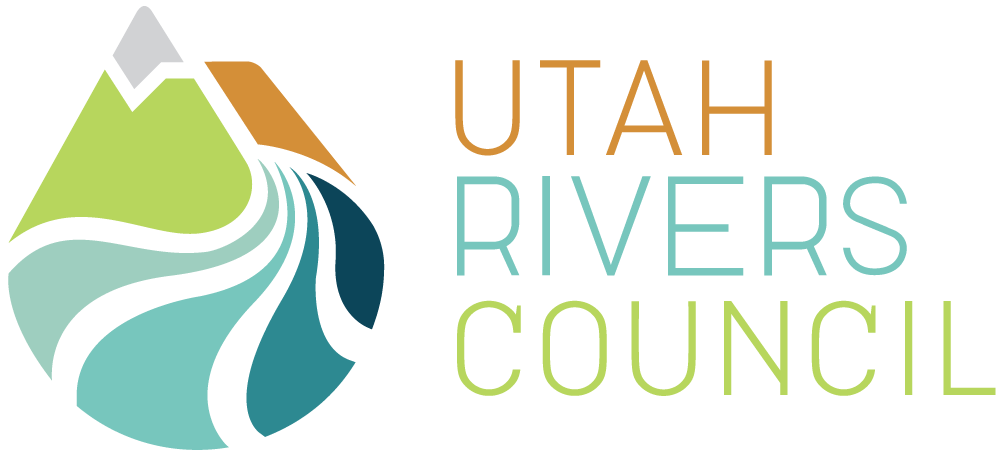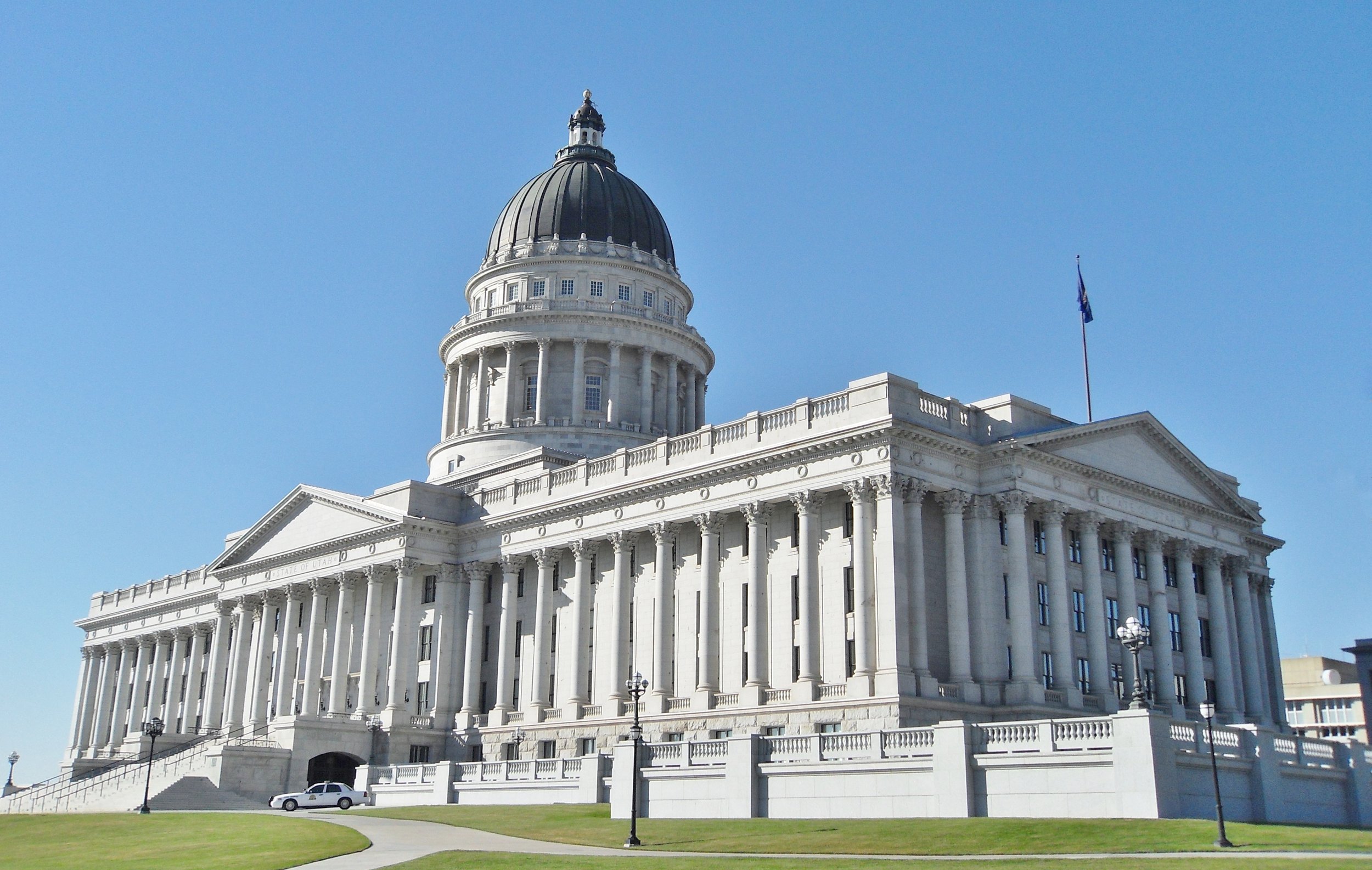-
Sen. Nate Blouin (D-Salt Lake) unveiled a new bill to set an official state goal to protect the Great Salt Lake at a press conference at the Utah State Capitol Complex on Wednesday, January 25th, 2023.
Utahns and their lawmakers from across the aisle say protecting the Great Salt Lake is a priority for Utah, but the state is without a clear-cut goal to measure its success.
The Great Salt Lake is at critically low levels, currently sitting at 4189 feet, 9 feet below what is considered the minimum healthy water level, according to scientists. This new bill would make the official policy of Utah to raise Great Salt Lake water levels back up to 4198 feet in elevation.
“Having a meaningful goal to strive for as we implement the strong work of the legislature is critical in our effort to save the Great Salt Lake,” said Senator Blouin.
Utah is lacking any real goal or measurable objective to protect the Great Salt Lake which makes it hard to know what it means to ‘save’ the Great Salt Lake. This ambiguity prevents us from devising a plan over time to raise water levels back up to healthy levels.
“Everyone wants to save the Great Salt Lake, but what does that mean?” said Zach Frankel, Executive Director of Utah Rivers Council. “What Utah and the Lake both need right now is a measurable goal so we can get serious about directing funding, establishing water conservation policies and empowering Utahns to save this crown jewel of Utah.”
Legislators in the Senate Natural Resources, Agriculture and Environment Committee decided against setting this official state goal, citing no legitimate reason to do so.
The fight to set an official goal for the Great Salt Lake continues.
-
Rep. Joel Briscoe (D, Salt Lake) is sponsoring the Great Salt Lake Funding Modifications Bill, HB 286, which would redirect some $60 million in existing annual sales tax collections in Utah to a fund to restore the Great Salt Lake.
With Great Salt Lake water levels dropping to alarming levels, lawmakers from both sides of the aisle and millions of Utahns agree it is important now more than ever to protect the Lake.
The sales tax money being proposed for redirection to restore the Great Salt Lake is currently going to a construction fund that was started by the Utah Legislature in 2015.
This fund, known as WIRA, or Water Infrastructure Restricted Account, has amassed a whopping $179 million dollars that haven’t been touched since the creation of the account. The purpose of the fund is to pay for the construction of the Lake Powell Pipeline and Bear River Development.
“Most Utahns don’t know their tax dollars are being used to advance Bear River Development, which is the nail in the coffin for the Great Salt Lake,” said Zach Frankel, the Executive Director of the Utah Rivers Council.
Proposed Bear River Development is a controversial proposal to divert the largest water source to the Great Salt Lake – the Bear River – which provides 60% of the Great Salt Lake’s surface water each year. The proposed water project is one of the largest new water diversion projects in North America, which would divert 220,000 acre-feet of water away from the Great Salt Lake and onto the lawns of Northern Utah residences each year. This project would accelerate the shrinking of the Great Salt Lake, which reached two record lows in less than 12 months.
HB 286 would redirect the nearly 60 million sales tax dollars being funneled into the Bear River Development annually, channeling them instead into the Great Salt Lake
Account. This would give the Division of Forestry, Fire, and State Lands – the
government agency tasked with managing the Great Salt Lake – the much-needed funds to restore water levels in the Lake.“We ought to be willing to spend whatever is necessary to make sure we preserve the Great Salt Lake and the economy of Utah and, to some degree, the economy of the nation," said Sen. Mitt Romney in a video conference call with members of Utah media in July 2022.
Legislators refuse to even discuss this bill, and HB 286 is still in the house rules committee as of February 2023.
Raising Great Salt Lake water levels is simple. Utah is America’s most wasteful municipal water user, meaning that reducing municipal water demand is relatively easy. Cities across the U.S. have been implementing an array of water conservation programs and policies successfully for decades, many of which can be implemented to provide water for the Great Salt Lake.
One of the first steps to implementing water demand reduction in Utah’s cities is to create sensible water rate structures, starting by phasing out the current property tax collection policy that encourages water waste. Utah water districts over-collect property taxes on housing, businesses and automobiles at a rate nearly three times that of other western water suppliers. Phasing out these property taxes would raise the price of municipal water closer to the national average, thereby greatly lowering water demand and providing water transfer opportunities for the Lake.
Additionally, individuals can be incentivized to sell their water to the Great Salt Lake through conservation organizations and other parties by amending Utah’s flawed instream flow law.
Finally, establishing a levy system to raise water fees on the watershed’s most wasteful water users --with increasing user fees based on the water elevation needs of the Lake-- is relatively simple. Elevation-driven drought management plans have been used successfully elsewhere, most notably on Lake Mead, which places water use restrictions on specific users as a function of declining reservoir levels.
As water becomes available through these and other programs and technologies, a permanent funding stream to transfer available water rights to the Lake would be easy to institute by leveraging existing tax collection policies.
The Utah Rivers Council has authored legislation for these and other efforts to conserve water, however, the Utah Legislature has refused to pass the proposed bills, often preventing a legislative committee from even hearing our legislation. This refusal stems from the massive special interest of water lobbyists which line the hallways and backrooms of the Utah Legislature. Utahns and Americans across the country must now decide if we are going to let the aquatic treasure that is the Great Salt Lake disappear through the power of this special interest and its lobbyists who are preventing Utah legislators from acting for the best interest of all Utahns.
Utah Rivers Council proposed legislation such as the Concurrent Resolution Regarding the Great Salt Lake Elevation Targets and Great Salt Lake Funding Modifications to help save the Lake. Learn more about our bills and its current status by clicking on each one.


